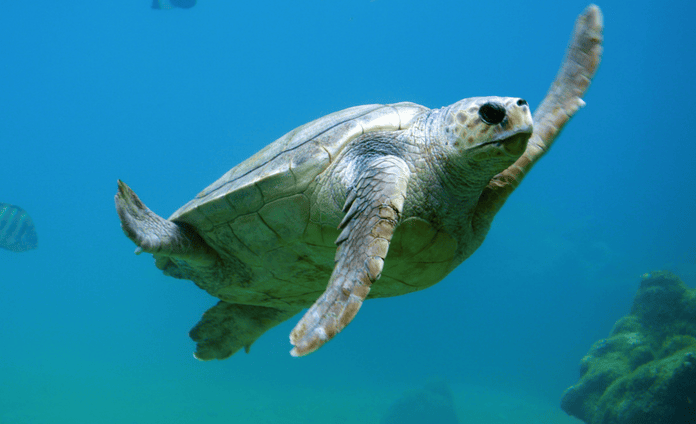According to the World Wide Fund (WWF) Pakistan, habitat deterioration and smuggling of diesel from Iran pose an existential risk to green turtles in the coastal regions of Daran, Balochistan.
A shift in the scutes of two turtles were detected on the Daran shores due to a combination of causes, including mortality during fishing operations, pollution, habitat degradation, and temperature change.
According to reports, deformity in the size of turtles and their scutes has not been seen in any other coastal region of the country, leading to suspicion that this anomaly might be caused by an oil leak as well.
The illicit use of the maritime route between the two countries to sell gasoline using heavy-weight jerry cans have raised concerns about the dangers it presents to animals.
Daran, a tiny coastal region between Pakistan and Iran, was seen being utilized for smuggling gasoline from Tehran, according to WWF photos. Hundreds of people rush the beaches, accompanied by almost 50 pickup trucks.
The police initiated action against the traffickers last October. However, the authorities’ efforts to stop the illicit traffic failed, and smugglers turned to the land route to avoid repeat incidents.
For the last few years, the coast has been the epicenter of open-air gasoline smuggling.
The oil leak from high-weight oil-filled jerry cans in turtle nesting sites, according to WWF Pakistan Technical Adviser Moazzam Khan, presents a significant danger to the population of green turtles.
Furthermore, increased human activity on the beach hardens the sand, making it harder for female turtles to build nests in the sand, and the smell of oil on the beach may drive them to return.
Under the weight of the solidified sand, the eggs are distorted and injured, resulting in a drastic shift in the new turtle species.
Oil smuggling was temporarily halted along the coast. Last February, though, the illicit traffic returned in full force on the shore.
Along with their marine cousins, freshwater turtles face severe challenges such as illegal poaching, water scarcity, river and canal fragmentation, and fishing activities.
The primary hazard to these endangered species is the export of freshwater turtle meat, which is prohibited.
Efforts by organizations such as WWF-Pakistan, provincial wildlife agencies, Pakistan Customs, and other partners to restrict the illicit trafficking of turtles have had little or no effect.










